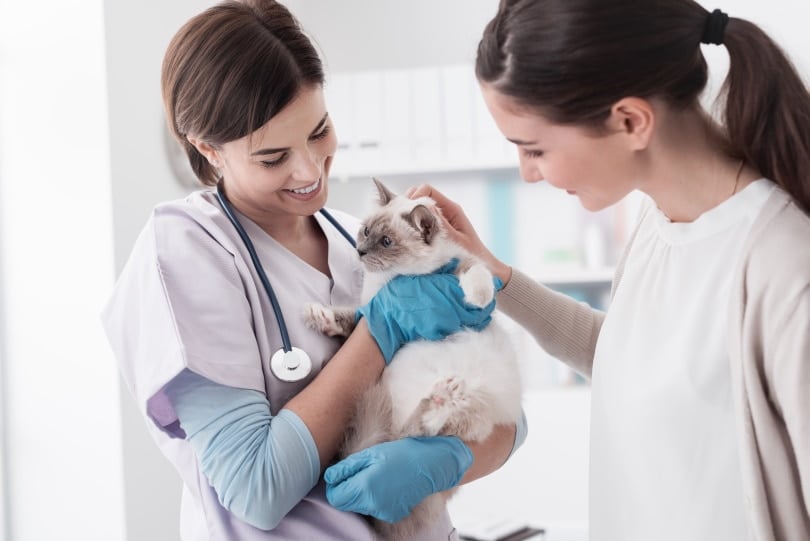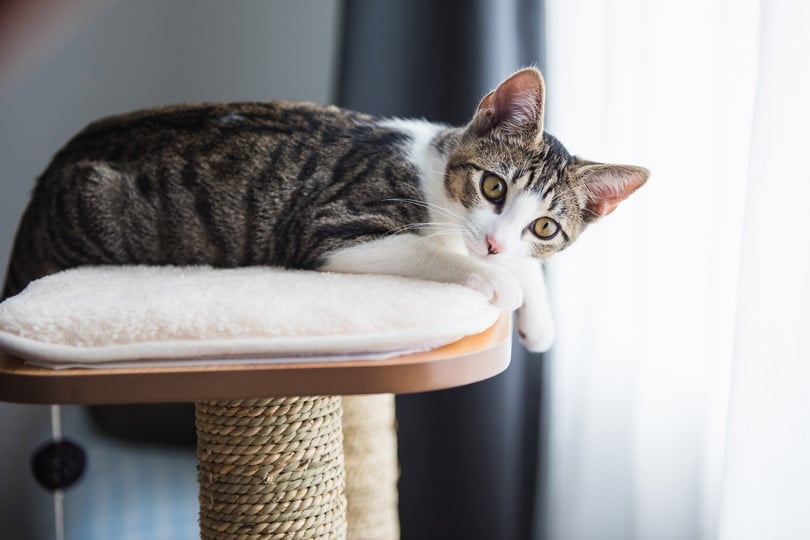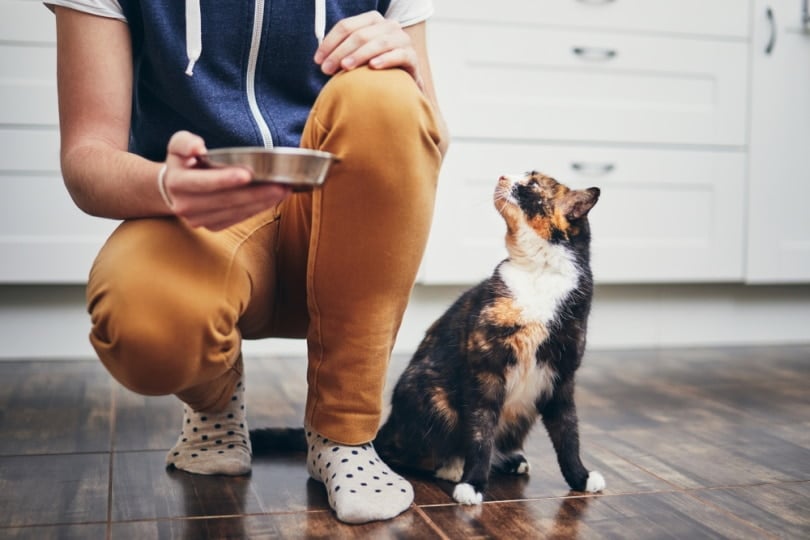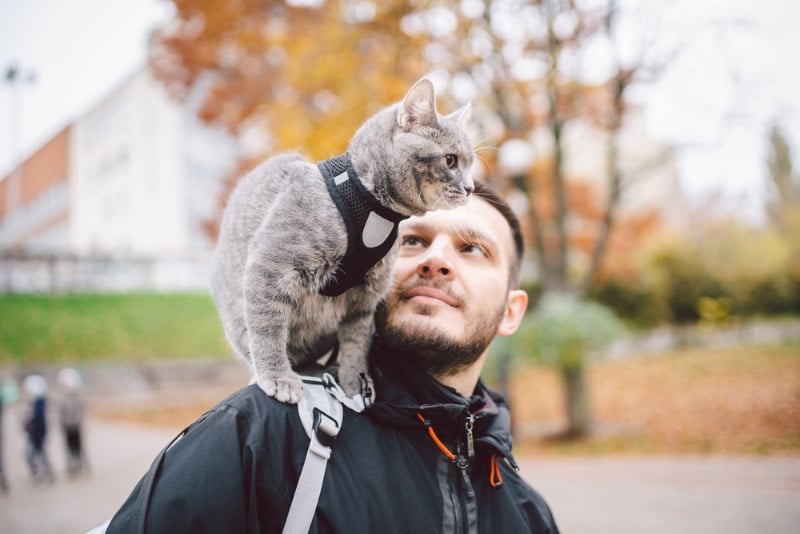If your cat suddenly stops being affectionate, it can be upsetting. However, it probably isn’t due to anything else you made. Cats can be quite sensitive creatures and can react negatively to things that we don’t even realize have happened, changing their behaviors due to stress or anxiety. All health issues can also cause changes in behavior, including your cat’s affection levels.
Below, we’ll examine these reasons and others that may make your cat less affectionate than before.


The 8 Possible Reasons Why Your Cat Isn’t Friendly Anymore
1. Health Issues
Cats are very good at hiding their illnesses. In the wild, any sign of illness can lead to attacks from predators, so cats have evolved to hide their illnesses as much as possible. However, they may show some subtle changes in behavior, such as not being very affectionate.
Illness can lead to a decrease in affection. Pets and cuddling can cause pain in cats with certain health issues, so they may avoid people altogether. All kinds of health issues fall into this category, such as dental problems and arthritis.
If your cat shows a sudden change in their behavior, we highly recommend making an appointment with the vet to rule out any underlying disease.

2. Aging
As cats get older, they can become more independent. Kittens are very active and very close to their owners. However, as they get older, they naturally don’t need as much attention as they used to. Your kitten may be very cuddly, but they may not grow up to be very cuddly. This is a normal part of their development and nothing to worry about.
Generally, adult cats prefer a quieter, more relaxed environment. Their energy levels may drop, and they may spend more time resting. This is nothing to worry about, especially if your vet has given them a clean bill of health.
3. Stress or Anxiety
Cats are very sensitive to stress. If something causes them stress or anxiety, they may withdraw and hide, which can make them less likely to be affectionate. Large objects can disturb your cat and stress them out. New pets, loud noises, and moving are in this category. However, your cat can also be affected by very small things, such as rearranging your furniture.
Ensure a calm and stable environment if you can. However, sometimes, stressful events just have to wait.

4. Traumatic Events
Sometimes, it is not a stressful situation that causes a change in behavior. It may be an event that happens to have a big impact on your cat. If your cat is on your lap and something scares them, they may avoid your lap. It only takes one traumatic event for cats to suddenly become wary of something they’ve been doing for years.
Rebuilding trust takes time and patience. Cats can avoid the scary thing for a few hours and then suddenly it’s okay. Some positive reinforcement training can help cats “snap out” of the traumatic event by filling them with positive feelings. However, it’s important to do this slowly, as you don’t want to stress your cat out further.
5. Changes in Routine
Cats thrive on routine and familiarity. Disruptions to their daily routine can cause stress, even if it’s something as small as coming home an hour later than usual. Changes in feeding times, sleeping arrangements, and play schedules can cause stress and anxiety, leading to changes in their behaviors.
If your cat is experiencing these changes, you may want to reconsider the changes if possible. if you have to change your cat’s routine, try to do it slowly to avoid over-stressing as much as possible. If this is not possible, you can often wait until your cat gets used to the new routine.

6. Overstimulation
Cats have a relatively low tolerance for physical contact and can easily become overstimulated when being handled. Overstimulation can lead to irritability and decreased desire for affection. Learning to recognize a cat’s limits and respecting their boundaries is important.
If you try to take care of your cat too much, they may try to avoid you because they are know you will try to touch them. If your cat always avoids being touched, they probably won’t seek it out.
A cat’s tolerance for physical affection may also decrease over time. Kittens often have a higher tolerance than adult cats, for example. Illnesses and stress can also change your cat’s tolerance, as we discussed above.
7. Fellowship
Cats must be socialized as kittens to accept people. If a kitten is not handled and petted enough when they are very young, it can lead to them not being particularly affectionate. It is important to adopt a kitten from a quality breeder for this reason. Otherwise, the kitten may not be properly socialized.
Socializing kittens can take a lot of work, but it’s important for the cat to be well-behaved as an adult. Cats that are not socialized can also be more prone to fear and stress, which can cause them to become unfriendly over time.
Adult cats tend to socialize “less” as they get older and are more set in their ways. Therefore, don’t assume that your kitten will continue to be accepting and friendly to everyone as they get older. Adult cats tend to be more fearful.

8. Periodic Changes
Cats can also migrate as the seasons change. Lighting levels will affect a cat’s hormones, which can slightly change their personality. However, these changes are not often extreme, especially if your cat has been spayed or neutered. Instead, you may just notice that your cat sleeps more or is more active—both of which can lead to less affection.


Conclusion
Cats vary widely in affection levels. Some breeds are exceptionally affectionate, such as Ragdolls. However, others may not be so loving. Cats can vary a bit, too. Just because your cat belongs to a certain breed doesn’t mean they will be super affectionate. Socialization and experiences will also affect your cat’s personality.
If your cat suddenly changes personality, you should make an appointment with your veterinarian. Many health issues can cause behavioral problems, so it’s important to rule them out first and foremost.
Featured Image Credit: Piqsels


